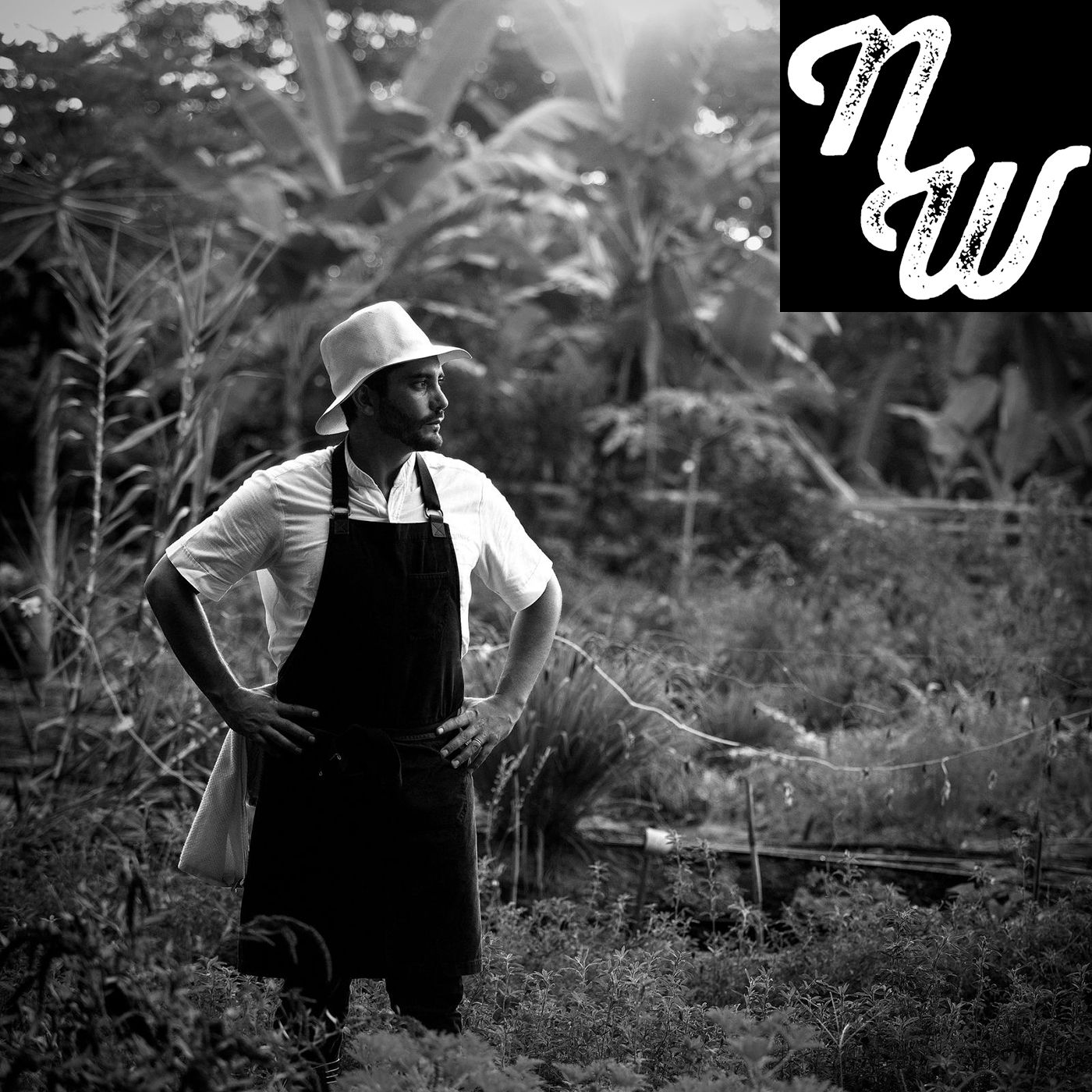Aug 29 2024 64 mins
A lot of chefs say they want to preserve landscapes, but Rodrigo Pacheco of Bocavaldivia in Puerto Cayo on the coast of Ecuador at is actually doing it. He is literally acquiring land and re-wilding it, in the hopes of turning it into the world’s largest biodiverse edible forest.
I first met the guy about 10 years ago at a conference in Quito. At the time, all the contemporary Ecuadorian chefs were trying to get international attention and get on lists and get famous. Then there was Rodrigo, who could care less about those things. It was still early on this project on a remote beach, but he was already talking about connecting with nature and utilizing biodiversity. He seemed totally out of place. It was still early in the life of Bocavaldivia. The 100 hectares of land he bought, a former pepper farm, was heavily degraded. Much of the surrounding tropical dry forest was cut down. There was little wildlife there. But in a decade, he has turned it into a thriving landscape, which, through the accrual of new land, now reaches up to the cloud forest. I was there earlier in the year and I saw it with my own eyes. He now uses more than 150 different edible plants from this landscape throughout the year on his menu.
While the heart of Bocavaldivia is a restaurant, where he and his team cook from a rustic wood fired kitchen adapted from native ones, and serve tasting menus alongside nice wines, to call it just a restaurant would be lacking. The experience there involves a journey. Many hours before eating you start to experience the landscape. You traverse them by fishing in the sea and tasting termites off a stick and hiking through the trees. You connect with it before you sit down and eat. And when you do sit down, there isn’t some long, drawn out explanation of what you are eating, because you’ve lived it.
Lots of other projects that spin out from Bocavaldivia. He has a restaurant in Quito called Foresta. He was on the Netflix cooking show The Final Table. He has created a mini-documentary series with indigenous leaders. He is a Goodwill Ambassador in Ecuador at the Food and Agriculture Organization of the United Nations. He started a foundation. He says because he lives in the middle of nowhere that he has a lot of extra time on his hands that most other chefs don’t. It’s funny how the less busy you are sometimes the more you can get done. I’m still trying to figure out how that works.
I first met the guy about 10 years ago at a conference in Quito. At the time, all the contemporary Ecuadorian chefs were trying to get international attention and get on lists and get famous. Then there was Rodrigo, who could care less about those things. It was still early on this project on a remote beach, but he was already talking about connecting with nature and utilizing biodiversity. He seemed totally out of place. It was still early in the life of Bocavaldivia. The 100 hectares of land he bought, a former pepper farm, was heavily degraded. Much of the surrounding tropical dry forest was cut down. There was little wildlife there. But in a decade, he has turned it into a thriving landscape, which, through the accrual of new land, now reaches up to the cloud forest. I was there earlier in the year and I saw it with my own eyes. He now uses more than 150 different edible plants from this landscape throughout the year on his menu.
While the heart of Bocavaldivia is a restaurant, where he and his team cook from a rustic wood fired kitchen adapted from native ones, and serve tasting menus alongside nice wines, to call it just a restaurant would be lacking. The experience there involves a journey. Many hours before eating you start to experience the landscape. You traverse them by fishing in the sea and tasting termites off a stick and hiking through the trees. You connect with it before you sit down and eat. And when you do sit down, there isn’t some long, drawn out explanation of what you are eating, because you’ve lived it.
Lots of other projects that spin out from Bocavaldivia. He has a restaurant in Quito called Foresta. He was on the Netflix cooking show The Final Table. He has created a mini-documentary series with indigenous leaders. He is a Goodwill Ambassador in Ecuador at the Food and Agriculture Organization of the United Nations. He started a foundation. He says because he lives in the middle of nowhere that he has a lot of extra time on his hands that most other chefs don’t. It’s funny how the less busy you are sometimes the more you can get done. I’m still trying to figure out how that works.
